In our fast-paced lives, it's easy to forget that our bodies constantly work hard to keep us healthy. We rarely give a second thought to the hundreds of processes happening inside us at any given moment.
One of those complicated mechanisms is inflammation. Inflammation seems to be a buzzword thrown around as it's often at the root of many health problems, but people generally don't know much about it.
Is CBD Good for Inflammation?
The latest research on CBD anti-inflammation properties suggests potential benefits in reducing chronic inflammation related to various health conditions [1].
CBD's interaction with the body's endocannabinoid system (ECS) is central to its potential effects on inflammation. This system regulates various physiological processes, including immune response and inflammation.
CBD may impact these receptors, potentially influencing the body's inflammatory response. For example, CBD might inhibit the absorption of anandamide, an endocannabinoid known to regulate pain, which could result in reduced inflammatory responses throughout the body.
While more research is needed to confirm these findings, it seems clear that CBD has the potential to be an effective treatment for inflammation. However, there are still no FDA-approved CBD products for inflammation.
Best CBD Products for Inflammation
You'll find no shortage of nonprescription CBD products in the health and wellness space. However, we want to reiterate that no CBD oil or product on the market is specifically designed for inflammation or chronic pain as it’s not FDA-approved.
That being said, many individuals have incorporated various CBD products into their wellness routines, finding them useful in managing their symptoms.
Here are eight of the top-voted best CBD for inflammation products that many people have found effective:
- Top Full Spectrum CBD Oil for Inflammation: Neurogan High Potency CBD Oil
- Voted Best CBD Gummy for Inflammation: Neurogan CBD + ACV Inflammation Fighter Gummies
- Best CBD Isolate CBD Oil for Inflammation Support: MedTerra CBD Isolate Drops
- Best Topical CBD for Inflammation: Neurogan CBD-Roll On
- The Best Low-Potency CBD Gummies: Charlotte's Web CBD Muscle Recovery Gummies
- Best Organic CBD Topical: Joy Organics Sports Cream
- Best Gel Formula CBD Topical: Lazarus Naturals CBD Muscle Gel
1. Neurogan High Potency CBD Oil (12,000 mg)
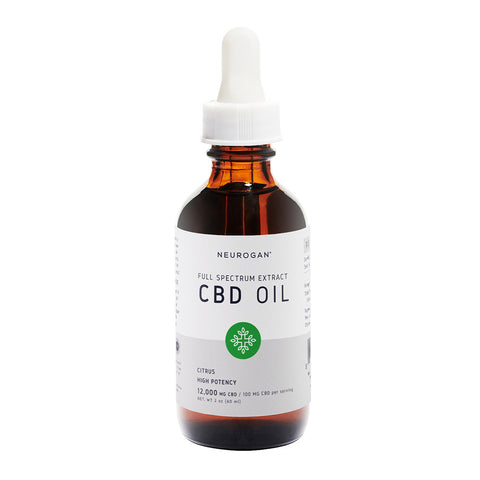
This oil, containing an impressive 12,000 mg of CBD in a 60 ml tincture bottle, is one of the most potent options available on the market, ensuring our customers receive the best value at only $0.02 per mg of CBD.
We understand that each individual's journey with CBD is unique, so we offer this oil in both full spectrum and THC-free broad-spectrum options.
While we do not make direct health claims, many customers have incorporated this high-potency CBD oil into their routines to manage inflammation.
2. Neurogan CBD + ACV Inflammation Fighter Gummies
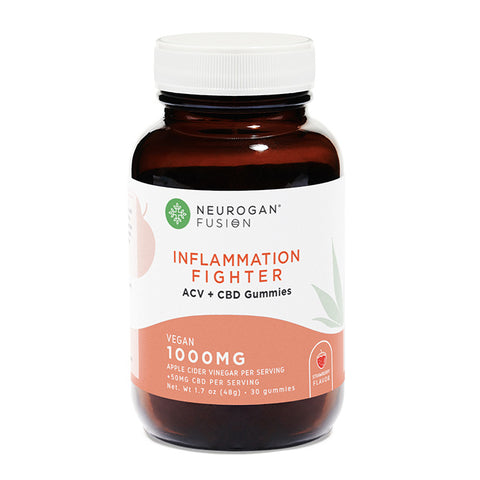
Apple cider vinegar, a staple in natural health remedies, is often lauded for its potential benefits in supporting gut and joint health. Many people turn to ACV as a natural approach to managing inflammation. When combined with the holistic properties of full spectrum CBD, these gummies become a powerhouse for supporting overall well-being.
Each bottle contains 30 delightful strawberry-flavored gummy squares packed with 1000 mg of full-spectrum CBD and 15000 mg of apple cider vinegar (ACV).
3. MedTerra CBD Isolate Drops
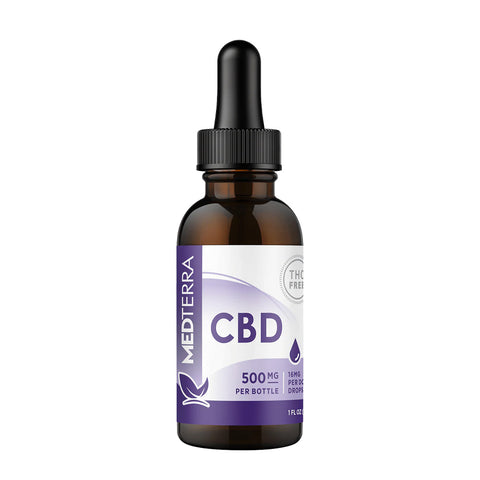
Recognized as a high-quality CBD isolate oil, this product is tailored for individuals who prefer to experience the singular benefits of CBD without the additional compounds found in other types of CBD like full spectrum or broad spectrum options.
These drops are ideal for individuals who may be sensitive to the flavors of terpenes or those who prefer a more straightforward CBD experience. The absence of other hemp compounds means users can focus solely on the properties of CBD itself.
4. Neurogan CBD-Roll On
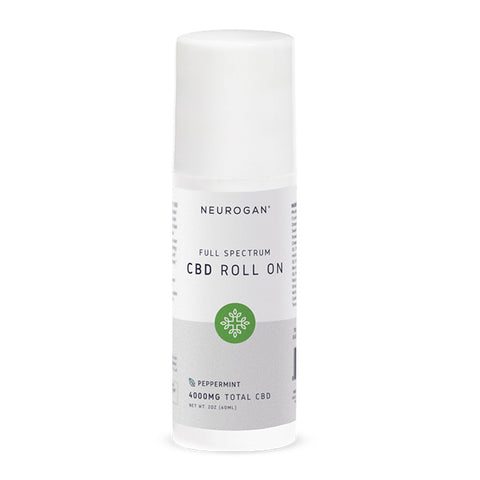
Understanding the discomfort that often accompanies inflammation, we've enriched our CBD-Roll On with the cooling properties of menthol and peppermint.
This combination enhances the soothing experience and may help reduce the hot sensation frequently associated with inflammation. With an impressive 4000 mg of CBD in each container, this roll-on is one of our most potent topical solutions.
5. Charlotte's Web CBD Muscle Recovery Gummies
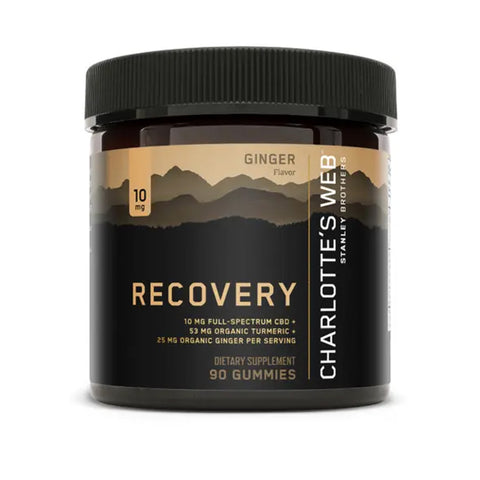
These gummies incorporate CBD and a blend of other natural ingredients known for their potential anti-inflammatory properties.
Key among these ingredients are ginger and turmeric, both revered for their health benefits. Ginger is known for its antioxidant properties, which can play a role in managing inflammation, while turmeric is celebrated for curcumin, a compound that has been studied for its anti-inflammatory effects.
These gummies offer a lower potency of CBD per serving, making them an ideal choice for individuals who are sensitive to CBD or are new to using CBD products. This lower dosage allows users to gently introduce CBD into their routine while still benefiting from the combined effects of all the natural ingredients.
6. Joy Organics Sports Cream

In keeping with Joy Organics’ commitment to quality and safety, this sports cream with 1000 mg CBD is a popular choice for anyone looking for an organic, broad-spectrum CBD product for topical use, especially with skin sensitivities.
Incorporating cooling agents adds to the soothing experience, making it a go-to option for mild aches and discomfort.
Although it doesn’t have a strong CBD potency, the overall product formulation is particularly geared towards addressing topical inflammation, offering a comforting sensation to the affected areas.
7. Lazarus Naturals CBD Muscle Gel
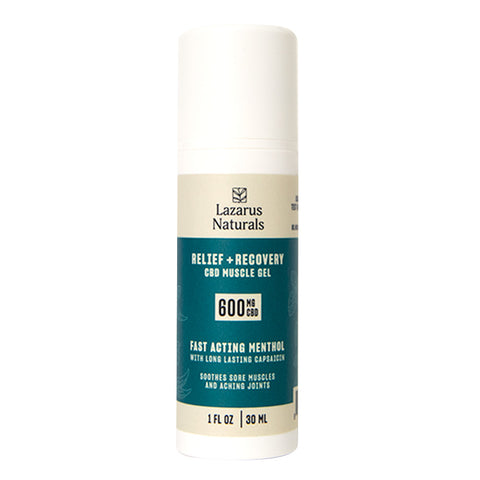
Containing 600 mg of CBD in a 30 ml container, this gel is formulated with functional ingredients like menthol and capsaicin, known for their heating and cooling properties.
The gel's unique blend creates a sensation that alternates between hot and cool, providing a soothing experience to the applied areas. This dual-action approach is soothing discomfort in joints and muscles, as it can help to ease tension and support relaxation.
Does CBD Oil Help With Inflammation?
Preliminary research suggests that CBD and other cannabinoids may support overall endocannabinoid system function, theoretically promoting body homeostasis (a state of balance) [2].
However, more research is needed to understand the potential therapeutic effects of CBD and other cannabinoids.
So far, most available evidence comes from animal studies and small human trials. Larger-scale human studies are needed to confirm the potential health benefits of CBD and other cannabinoids.
CBD May Help Inflammatory Function
There's a generalized idea that cannabinoids have anti-inflammatory properties to suppress the immune system — but some researchers found that they may help increase immune function in some conditions, specifically in vivo studies on mice with induced pulmonary inflammation [3].
Specifically, CBD and delta-9 THC enhanced interleukin (IL)-2 production, which activates T-sells [3]. The results show that cannabinoids differentially affect immune function depending on the cell type, magnitude of inflammation, and age.
This is promising as it shows that compounds in the Cannabis Sativa plant may help regulate function — not just halt processes in the immune system related to inflammation — as some inflammation is a good thing.
CBD May Help With Acute Inflammation
The most notable immune cells involved in the process of acute inflammation are histamine and the enzymes COX and 5-LOX—most over-the-counter pain relief medications like Asprin work by blocking the COX enzyme release.
One study found that CBD, CBG and THC from the cannabis plant may also help to inhibit COX enzymes similar to NSAIDs (non-steroidal anti-inflammatory drugs), which shows potential for treating pain, especially using CBD gummies for joint pain and muscular pain [4].
According to this observation, strengthening the endocannabinoid system may help protect from colonic inflammation, which is vital for preventing bowel disease and colorectal cancer [3].
CBD May Help With Conditions Related To Chronic Inflammation
A widespread condition associated with chronic inflammation is arthritis—inflammation of the joints that affects over 58 million adult americans.
In studies conducted on murine collagen-induced arthritis, CBD in products like oils or gummies was found to have actions on multiple inflammatory messengers that cause pain, nerve damage, and mobility—rather than just one or two pathways like many medications designed to reduce inflammation [5 ].
Currently, no CBD-based medications are FDA-approved to treat rheumatoid arthritis or any other inflammatory conditions. However, many people, including seniors, still choose to use CBD products such as CBD gummies for seniors to control the severity of their conditions, as there have been many anecdotal reports regarding the success of CBD oils in treating chronic pain.
With more interest in the potential of CBD oil in medicine, we can expect more studies to emerge on CBD and anti-inflammatory activity.
How to Use CBD For Inflammation
The most common CBD supplement is in the form of CBD oil, sometimes called CBD tincture. It combines a set amount of pure CBD extract listed in MG in a carrier oil such as coconut oil or hemp seed oil, and it's designed to be used as an oral supplementation.
CBD tincture comes in a wide range of CBD concentrations ranging from 100–12,000 mg per standard 30 mL (1 oz) bottle. The studies on CBD and its effects on pro-inflammatory cytokines used higher doses of CBD — upwards of 50 mg.
Of course, you don't ever want to start with high doses if you're new to a cannabis compound. The best way to incorporate CBD into your health regimen is to introduce it in small amounts over a while to allow your endocannabinoid system to adjust to the cannabinoids.
You can measure the CBD oil and apply it directly under the tongue, try CBD gummies for inflammation, or mix CBD into your drink or favorite to mask the CBD oil's natural "hemp" flavor.
CBD Dosages
Finding the right CBD dosage for inflammation can vary from person to person, depending on the individual's body weight, the severity of the inflammation, and the concentration of the CBD product used.
It's generally recommended to start with a low dose (10 mg) and gradually increase it (up to 50 mg or more over a several weeks), monitoring the body's response.
CBD's growing popularity in the wellness space means that many ambitious entrepreneurs want a piece of the pie. However, not all CBD products will deliver the same level of effects, and many of the products out there can be dangerous.
- Choose a full spectrum CBD extract or broad-spectrum CBD extract: full spectrum CBD oil contains a range of phytochemicals that help to support CBD's role in the endocannabinoid system. CBD isn't the only cannabinoid shown to have potential therapeutic effects. While CBD isolate extracts may be cheaper, they're not as effective as a full spectrum CBD product.
- Check third-party lab tests: third-party tests verify the cannabinoid profile (the type of CBD extract), how much CBD it contains, and its safety. Never purchase a CBD product without first looking at this document.
- Ensure the company discloses the CBD source: only hemp is legal as per the Controlled Substances Act. Marijuana plants contain more than 0.3% THC, which is still a restricted compound and may result in psychoactive effects. You can also do THC-Free CBD Oil, to be sure.
- Choose a higher potency CBD product: if a product doesn't have enough CBD, you may not notice its effects. Companies are sprinkling in dismal amounts of CBD to charge a premium price — don't get duped by these brands. Look for a CBD potency that closely matches your needs.
- Look for brand reputation: Don't let the marketing and customer reviews on the company website fool you. Look for third-party review websites and forums to get a feel for a brand's efficacy and customer service before you shop with them.
Cannabidiol for Inflammation
If you're shopping for CBD oil to support health conditions, please remember that the FDA has not approved nonprescription CBD products. It would help if you spoke with your doctor first to understand its safety and side effects and to ensure it will be appropriate in your situation.
While there haven't been enough studies to understand the relationship between CBD and inflammation in humans, but researchers have found CBD reduces inflammation and pain in animals. Anecdotal evidence also suggests that it may have the same benefits in humans.
Many people are already finding a lot of luck using CBD oil as part of their wellness regimen to manage chronic and acute inflammation. Still, it's not an FDA-approved means of treating conditions.
FAQ
What is inflammation?
The body's natural response to injury or infection is inflammation. It entails the release of molecules that assist in protecting the body from further harm. Inflammation can be beneficial in some situations, such as when it aids in wound healing. Inflammation, on the other hand, can be damaging, as in the case of arthritis.
What is CBD?
CBD, also known as cannabidiol, is a naturally occurring molecule obtained from the Cannabis Sativa plant that belongs to a class of chemicals known as cannabinoids.
In the endocannabinoid system (ECS), cannabinoids are very similar to cell-signaling chemicals. The ECS has been found to regulate mood, metabolism, memory, stress, and even immune function.
CBD, unlike tetrahydrocannabinol (THC), the principal cannabinoid in marijuana plants, does not produce intoxication, making it a desirable choice for therapeutic research. CBD can be found in both hemp and marijuana plants. However, legal CBD is derived from hemp crops containing less than 0.3% THC, owing to the 2018 Farm Bill.
Does CBD Oil help with inflammation?
Cannabidiol has been discovered to have anti-inflammatory potential through numerous routes in preclinical and early clinical investigations, making it an intriguing chemical for further research.
CBD products and medical cannabis are used to treat arthritis, tired muscles from activity, injuries, chronic pain, and even gastrointestinal disorders.
How do you choose Quality Hemp-Derived CBD products?
Because of CBD's growing popularity in the wellness arena, many ambitious entrepreneurs want a piece of the pie. However, not all CBD products will provide the same amount of effects, and many of the products on the market can be unsafe.
Before purchasing CBD goods, be sure to select a full spectrum CBD extract or a broad spectrum CBD extract, check third-party lab tests, confirm the company discloses the CBD source, select a higher potency CBD product, and consider brand reputation.
Resources:
- Burstein, S. (2015). Cannabidiol (CBD) and its analogs: a review of their effects on inflammation. Bioorganic & medicinal chemistry, 23(7), 1377-1385.
- Karmaus, P. W., Wagner, J. G., Harkema, J. R., Kaminski, N. E., & Kaplan, B. L. (2013). Cannabidiol (CBD) enhances lipopolysaccharide (LPS)-induced pulmonary inflammation in C57BL/6 mice. Journal of immunotoxicology, 10(3), 321-328.
- Ruhaak, L. R., Felth, J., Karlsson, P. C., Rafter, J. J., Verpoorte, R., & Bohlin, L. (2011). Evaluation of the cyclooxygenase inhibiting effects of six major cannabinoids isolated from Cannabis sativa. Biological and Pharmaceutical Bulletin, 34(5), 774-778.
- Nagarkatti, P., Pandey, R., Rieder, S. A., Hegde, V. L., & Nagarkatti, M. (2009). Cannabinoids as novel anti-inflammatory drugs. Future medicinal chemistry, 1(7), 1333-1349.
- Elmes, M. W., Kaczocha, M., Berger, W. T., Leung, K., Ralph, B. P., Wang, L., ... & Deutsch, D. G. (2015). Fatty acid-binding proteins (FABPs) are intracellular carriers for Δ9-tetrahydrocannabinol (THC) and cannabidiol (CBD). Journal of Biological Chemistry, 290(14), 8711-8721.


